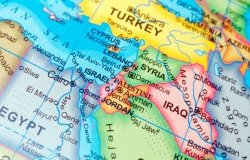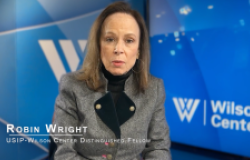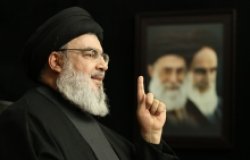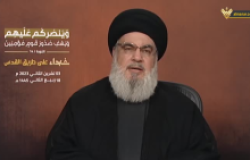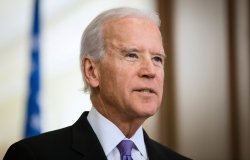Report: Salafi Political Trends
Egypt’s Salafis, ultraconservatives whose views often seem at odds with democracy, actually hold a wide range of views on politics, secularism, and human rights, according to a report by Kent Davis-Packard at the Center for Middle East Policy at Brookings.
Egypt’s Salafis, ultraconservatives whose views often seem at odds with democracy, actually hold a wide range of views on politics, secularism, and human rights, according to a report by Kent Davis-Packard at the Center for Middle East Policy at Brookings. Some of these positions even parallel views held by secular liberals. Egyptian Salafis actually “form part of a strategically interesting group of thinkers in Egypt that extends across the Islamist-secular divide.” The following are excerpts from the report.
Post-“Coup” Salafi Attitudes and Alliances
Since the Egyptian military forced former President Morsi to step down after the Egyptian people had demonstrated in the streets against him in June 2013, the Nour Party fractured significantly. This has transformed relationships between Salafis and the state, their own religious leadership, secular liberals, and the Brotherhood. The military takeover also created an impulse for unlikely alliances across the Islamist-secular divide, especially among Egyptian youth.
Nour Party Loses Membership and Support
Although the Nour Party is unable to provide exact numbers, its leadership acknowledges a significant loss in official and unofficial membership after its decision to stand by the military’s ousting of Morsi. The Nour Party said it chose to support the military takeover because the Egyptian military is “the only functioning army in the region.” It ultimately supported el-Sissi for president, according to Nour Party media spokesman Nader Bakkar, because they “did not want yet another president who would clash with state agencies.”
The Nour Party’s Gray Areas
Although the Nour Party officially supported Morsi’s removal by force, interviews with Nour Party members and its leadership reveal that it has not established internal consensus, and those who stood by the military’s decision are now hesitating to throw their weight behind another military-backed regime.
Salafi Relations with the State
Because of the Nour Party’s internal divisions and the dissenting attitudes of splinter parties and independent Salafis, the Egyptian government can no longer count on its traditional pro-establishment stance. A former Egyptian diplomat expressed disappointment in the Nour Party’s behavior, saying, “we thought we could count on them, but now we don’t know what they are doing.” The fact that a Nour Party spokesman called el-Sissi’s presidential run “a gamble,” and many other Salafis outside Nour are openly, or secretly, against el-Sissi, increases the Egyptian government’s paranoia, and has created an environment of fear for all Islamists in Egypt, not just members of the Muslim Brotherhood.
Salafi Sheikhs Lose Popularity
In addition to the Nour Party’s loss of credibility among Salafis for having supported the military takeover, many Salafi sheikhs have lost credibility for “not standing up to the regime after June 30.”
This criticism of their own sheikhs, both in local mosques and on television, represents another new phenomenon among Egyptian Salafis, who have in general held their spiritual and political leaders in reverence. Salafis are speaking out against the support from behind the scenes from the regime for their organizations and leadership.
Salafis Say they are Reaching Beyond the Brotherhood
Relations between Salafis and the Muslim Brotherhood since the June 30 military takeover have remained tense. Instead of supporting Morsi’s reinstatement, many Salafis are calling for a third option—for a new government that is neither military-backed nor Brotherhood-dominated. A major reason for this has to do with their sense of betrayal by the Brotherhood. Although the Asala and Shaab parties officially support Morsi, members of these groups were critical of his tenure, and independent Salafis are now skeptical of the Brotherhood’s ability to work for more than its own cause.
Strange Bedfellows: Salafis and Secular Liberals?
As mentioned, rather than leaving Nour to support the Muslim Brotherhood, many Salafis interviewed claimed they demonstrated alongside the Brotherhood not to reinstate Morsi, but to protest the idea of a military take-over as anti-democratic. Significantly, this is the same reason given by secular liberals protesting the events on June 30. An influential Egyptian secular liberal also said he was fighting not only against the Muslim Brotherhood, but also against a state and economy controlled by the military and a small group of elites.
Despite Salafi and secular liberals shared views, secular liberals would be wont to identify themselves in any way with Islamist ideology, largely owing to other conflicting religious or cultural practices and beliefs. Salafis would also hesitate to identify themselves with secular liberals for the same reason. Still, when focusing attention on their views of governance, the two groups speak in parallel, like ships passing in the night.
Salafi Domestic Political Goals
While official Salafi party domestic political goals are not “to establish a democracy” in Egypt, when Salafi rank and file describe ideal governance in Egypt, they often call for some of the rights and freedoms associated with modern, western definitions of democracy. Although there is no consensus on the modern definition of “democracy,” some theorists and activists have emphasized not only its procedural components, such as elections and voting, but also its social justice and human rights components.
Democracy and Islam
In contrast to the traditional aversion to democracy, owing to tawhid, or their belief in “rule by God,” not humans, Salafis interviewed made statements about Islam’s inherent compatibility with democratic principles. Many Salafis insisted that despite the fact that Islamists and westerners sometimes define the term “democracy” differently, “we share values with the United States—freedom of speech, equality between people—we had these rights in our Quran and Sunna over one thousand years ago, and we aren’t doing this to fit in with modernity.”
A “Secular,” ”Civil” State?
Rank and file members objected to Article 219, which was supported by Nour Party leadership and specifies Sunni Islam specifically as the source of Shari‘a law. Seemingly a core Salafi value, interviews with independent Salafis suggest that not all Salafis were in agreement with this position—a finding that indicates the variance on many other issues within the Salafi community.
Social Justice as a Shared Vision with Secular Liberals
Social justice, significantly, was among the top three demands of the Egyptian people at Tahrir Square during the January 2011 uprising. It is also identified by Salafis as a key component of ideal governance. Although this shared desire for social justice has not yet created strong bridges between Islamists and the rest of Egyptians, it represents a potentially influential and politically powerful place where liberal secularists and Islamists could come together. Salafis have already demonstrated that they are willing to work for social justice issues within the political sphere.
Women’s Rights Under Sharia Law
Salafi women interviewed claimed that, contrary to popular thinking, most limitations placed on Egyptian women come from societal norms rather than religious restrictions.
Click here for the full report.
Related Program

The Islamists
Learn more about Hamas and how it relates to similarly aligned organizations throughout the region. Read more

